![]() — หน้าแรก — เกาะติดข่าว
— หน้าแรก — เกาะติดข่าว
ข่าวเศรษฐกิจและธุรกิจประจำสัปดาห์
-
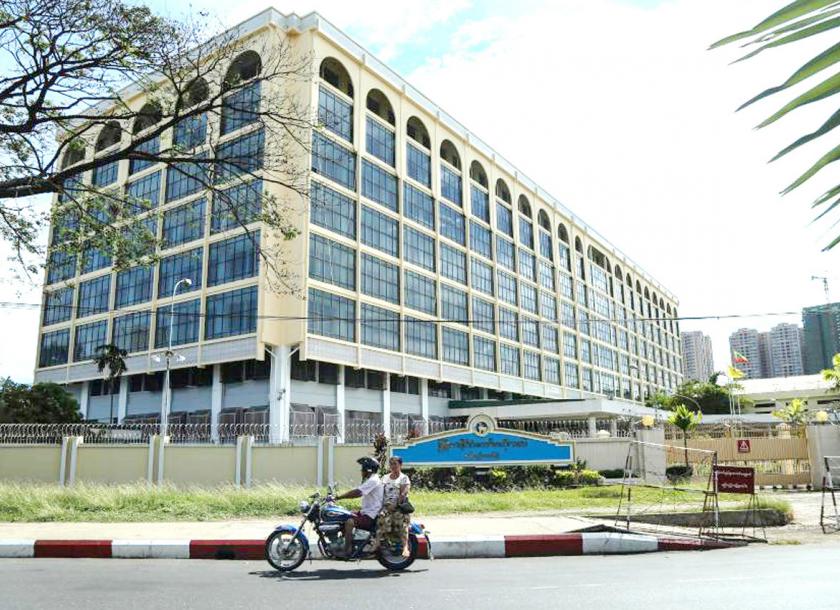
Local banks are struggling to meet a set of regulations set by the Central Bank of Myanmar (CBM) in July 2017
Local banks are finding it difficult to meet a set of new regulations set by the Central Bank of Myanmar (CBM) in July 2017 to modernise the domestic financial sector and better attract foreign direct investments at a time of slower growth. Under a new Financial Institutions Law, the CBM has ordered banks to maintain higher capital adequacy ratios, limit lending exposure to single borrowers, reclassify loans and advances and recover overdraft loans. Drafted with assistance from the International Monetary Fund, the regulations are in line with international Basel III standards. “The regulations imposed by the CBM are meant to align the Myanmar financial sector with the international banking industry. They are very good regulations and should be implemented,” said U Than Lwin, senior adviser at Kanbawza Bank and former CBM vice governor. -
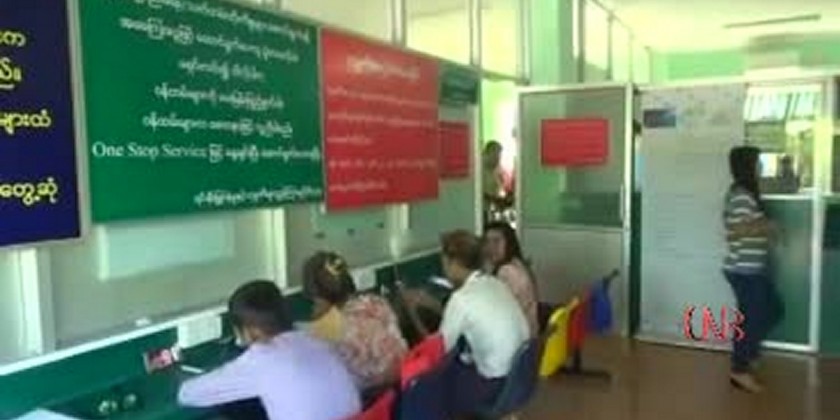
Infrastructure is crucial to attract more foreign direct investment (FDI) (Directorate of Investment and Company Administration – DICA)
The local investments outnumbered that of foreign in Nay Pyi Taw council area, according to Director of DICA. At present, there are 21 businesses invested by local citizen and 6 businesses by foreigners in Nay Pyi Taw council area. Director, DICA (Nay Pyi Taw council). Aye Sandar Lwin said “There is 541 billion kyats of local investment and 59.65 million USD of foreign investments in Nay Pyi Taw council area. The local investment in Nay Pyi Taw council reaches 3.65% of the investment in the whole country.” More job opportunities will be created when more foreign investments are attracted, Director added. Nay Pyi Taw council area has potentials to do business due to the spacious land and electricity is fully provided, director said. -
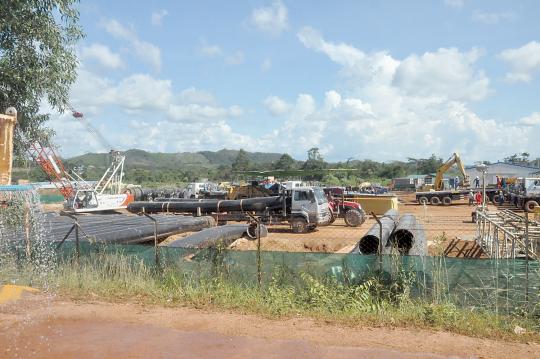
Gas production rates of the Yedagon and Zawtika projects, which mainly export to Thailand, are in decline (Ministry of Electricity and Energy)
Production rates of the Yedagon and Zawtika projects, which mainly export natural gas to Thailand, are falling, according to the Ministry of Electricity and Energy. The Yedagon gas project is currently exporting 200 million cubic feet (mmcf) daily to Thailand, while the Zawtika gas project is exporting 200mmcf abroad and also produces 100mmcf for domestic use. The figures represent a drop from last year’s production levels. According to the figures released in June last year, the Yedagon project produced 250mmcf daily, while the Zawtika produced 250mmcf for export and 80mmcf for domestic use. The Yadana field now produces 650 million cubic feet (mmcf) of natural gas daily, most of which is exported, with 200mmcf used domestically. The Shwe site produced 400mmcf for export and another 100mmcf for domestic use. -
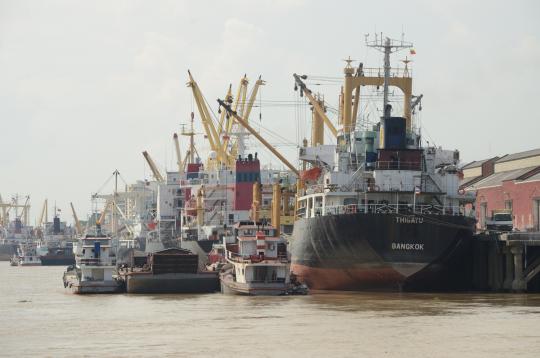
Foreign investments are invited for the upgrade of jetties along the coast into international standard ports
Foreign investments will be sought to upgrade jetties along the coast into international-standard ports as additional capacity is needed to supplement the Yangon port, which now handles 90 per cent of sea-based goods transport. “Jetties along the coast are mainly used for handling domestic cargo. They will become international ports when there is an inflow of additional investments,” said Dr Myo Nyein Aye, deputy general manager of the Ministry of Transport and Telecommunications. He was speaking on February 8 at the Myanmar-Korea Investment Promotion Seminar at Lotte Hotel in Yangon. -
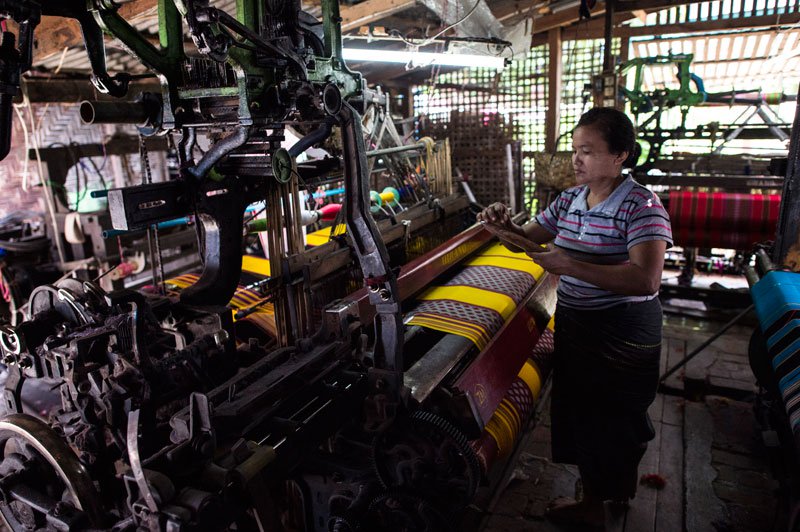
Ethnic entrepreneurs plan to establish a new business association in order to promote balanced development between urban and rural areas and ensure private sector development
Ethnic entrepreneurs across Myanmar are planning to establish a new business association, according to the Union of Myanmar Federation of Chambers of Commerce and Industry (UMFCCI), state media reported on 12 February. The new association will represent entrepreneurs in regions lagging behind in development. The formation of the ethnic entrepreneurs’ association is aimed at promoting balanced development between urban and rural areas, and ensuring private sector development. -
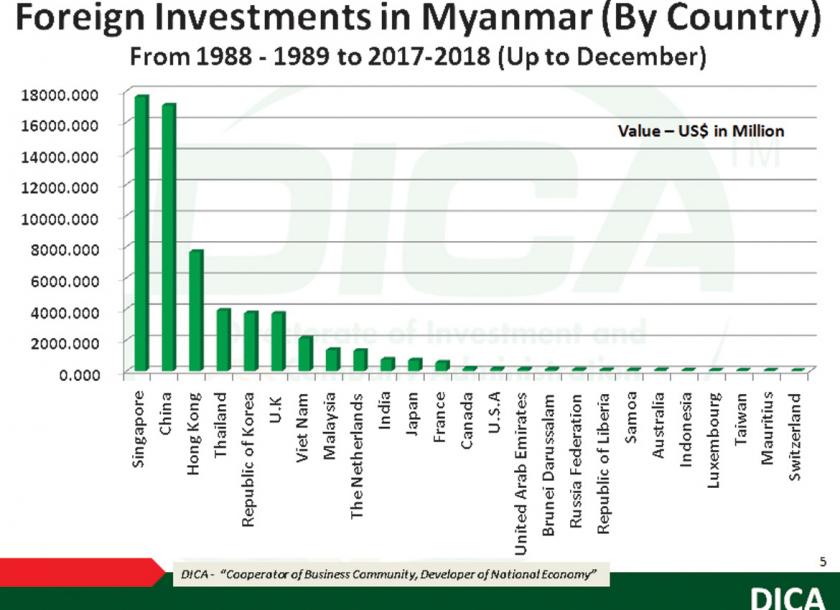
South Korea is interested in investment opportunities in manufacturing and infrastructure in Myanmar
South Korea is eyeing expansion opportunities in manufacturing and infrastructure in Myanmar. At the Myanmar-Korea Investment Promotion Seminar in Yangon on Thursday, a delegation of 13 South Korean countries met with officials from the Ministry of Transport and Communication and Ministry of Electricity and Energy (MOEE), seeking opportunities to invest in the two sectors. “We selected the most promising South Korean manufacturing and infrastructure companies to explore investment opportunities in Myanmar, where the government is also focused on developing these two sectors,” said Kim Young-sun, Secretary General of the ASEAN-Korea Centre, which promotes economic and socio-cultural cooperation between ASEAN and Korea. The South Koreans are betting on Myanmar’s need to develop better infrastructure as the country strives to achieve its target of 6 percent-9pc GDP growth under its National Comprehensive Development Plan for 2011-30. “Korean companies have the right experience and technological know-how in developing a wide range of infrastructure and they are willing to help Myanmar develop its roads, railways and ports,” Mr Kim said. -
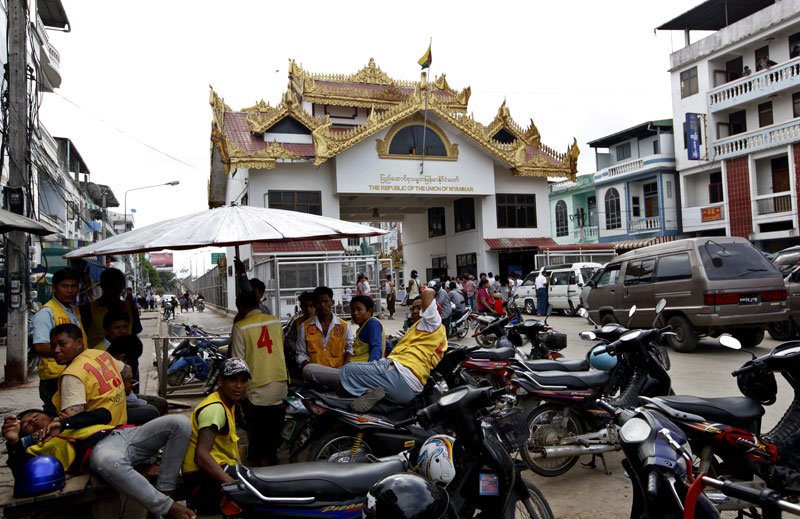
Myanmar – Thailand border trade value reached nearly US$ 1.16 billion this fiscal year, between 1 April 2017 and 26 January 2018
The value of border trade between Myanmar and Thailand has reached nearly US$1.16 billion, with the Myawaddy border trade gate accounting for the largest volume of trade, state media reported quoting the Ministry of Commerce. The Myanmar-Thailand border trade totalled $1.16 billion this fiscal year, between 1 April 2017 and 26 January 2018, which included $336 million in exports and $824 million in imports. -
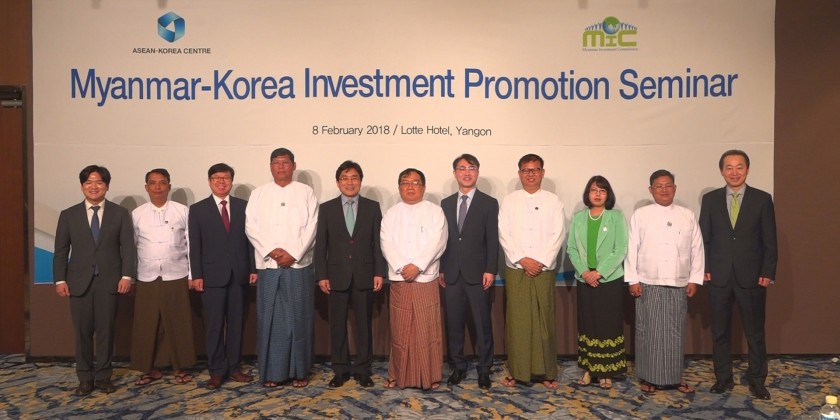
Myanmar-Korea Investment Promotion Seminar was held in Yangon to seek business opportunities and improve win-win partnership between the two countries
The joint forces between Myanmar and Korea are now in full swing to scale up Korean’s investment in Myanmar. The 13 Korean companies and organizations led by the Secretary General of the ASEAN-Korea Centre visit Myanmar not only to seek business opportunity but also to improve win-win partnership between the two countries. According to the MIC, Korea stands sixth on the list of foreign investor countries with over 3.5 Billion US$ investment, especially in infrastructure projects, hotel and tourism and manufacturing industry. The Secretary General shared the future potential areas for the investment and highlighted the implementation process of the policy. -
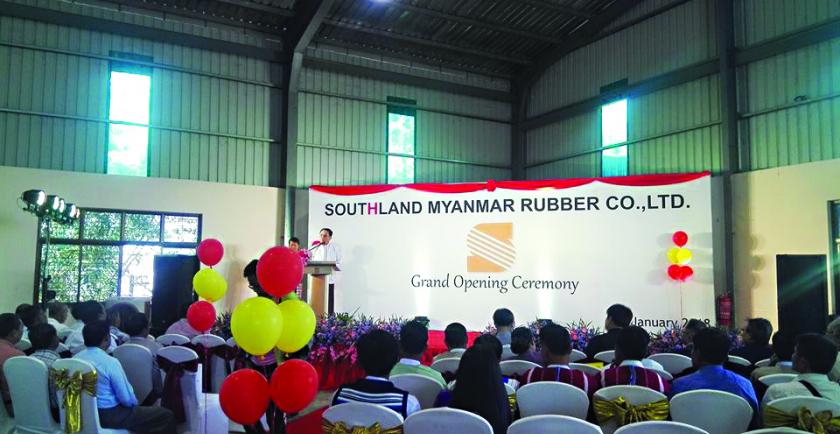
Thilawa Special Economic Zone's first rubber production plant started operations on 25 January 2018
Thilawa Special Economic Zone first rubber production plant has kicked off on January 25th and has started operations to produce various kinds of rubber. The plant was built by Southland Myanmar Rubber Co., Ltd in order produce international standard rubber and is the first rubber production plant to produce various kinds of rubber. The plant, Myanmar-Singapore joint venture, will be able to produce up to 100 tons of rubber daily and is expected to produce 2,500 tons of rubbers annually. -
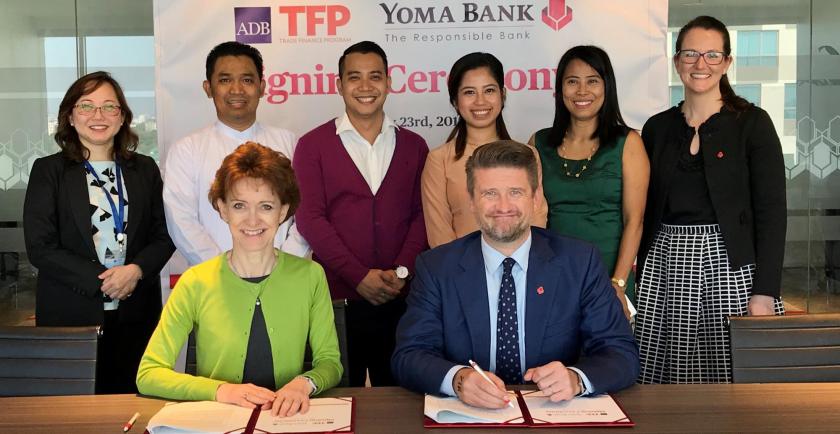
ADB’s Trade Finance Program and Yoma Bank signed an agreement to provide guarantees of at least US$ 10 million to support trade, especially SMEs, in Myanmar
The Asian Development Bank’s (ADB) Trade Finance Program (TFP) and Yoma Bank today signed an agreement to provide guarantees of at least $10 million annually to support trade, especially for small and medium-sized enterprises (SMEs), in Myanmar. “We are excited to welcome Yoma Bank as the newest TFP partner," said Janet Hyde, TFP’s Relationship Manager for Myanmar. "We look forward to working with Yoma to develop a strong trade finance franchise for the bank in support of Myanmar’s trade flows, especially for SMEs.” “Yoma Bank is proud to participate in ADB’s Trade Finance Program. Together, we will support and stimulate international trade with Myanmar. With ADB’s support, Yoma Bank looks forward to the continued growth of our trade finance program providing important liquidity to Myanmar’s import and export community,” said Hal Bosher, Special Advisor to the Chairman and CEO of Yoma Bank.
เกาะติดข่าว
Copyright © 2014 Business Information Center All Rights Reserved.







